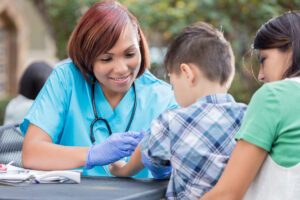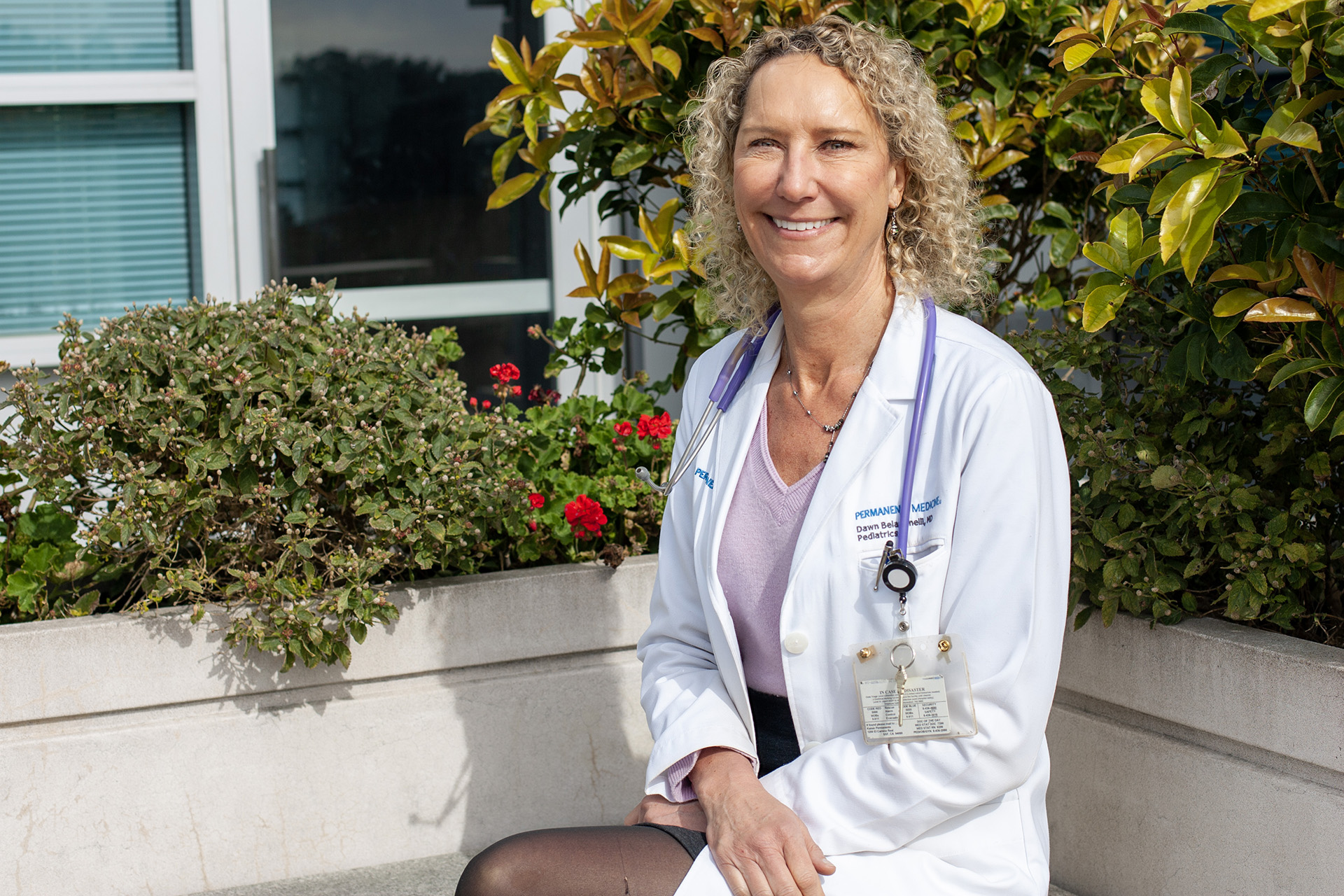Children in 14 Northern California counties could be at risk for contracting measles as immunization rates remain below a point necessary to prevent outbreaks, according to newly released data from the California Department of Public Health.
The percent of kindergarteners at the end of 2022 who received 2 doses of the combined measles, mumps, and rubella vaccine as required by law to enter school was below the approximate transmission threshold of about 95% in 16 counties statewide, with 14 of those in Northern California. Five of those counties had rates lower than 90%.
Those low numbers were largely unchanged from the previous school year.
“If you can, you should have 20 out of 20 kids in a classroom be vaccinated, and vaccines are the best method to prevent infections of a highly infectious pathogen like the measles,” said Michael Vollmer, MD, Kaiser Permanente regional hospital epidemiologist and co-chair of the Regional Infection Control Committee. “The bar for preventing measles through vaccination is high and it’s above 90%.”

Sutter County, just north of Sacramento, had the lowest rate of measles vaccine coverage in Northern California for children, at 79.9%, according to the state health department.
Dr. Vollmer said Kaiser Permanente has been tracking the numbers “very closely and making huge efforts at point of care to keep our members vaccinated. Every encounter with a clinician is an opportunity to get a shot in the arm, and our pediatricians are really good at that.”
National health alert
In February, an unvaccinated person with measles who attended a religious gathering of 20,000 people in Kentucky prompted a national health alert from the Centers for Disease Control and Prevention for public health officials to be on the lookout for spread from that exposure.
The effects of years of vaccine disinformation are reflected in a recent Kaiser Family Foundation survey showing 28% of parents nationwide believe they should be able to decide not to vaccinate their school age children, even if it creates health risks for others. That percentage is up from 16% in 2019.
Dawn Belardinelli, MD, a Kaiser Permanente pediatrician at the Daly City Medical Office who also is the regional immunization performance improvement lead, is well aware of the “dip in childhood immunization rates” and said in some areas of Northern California, Kaiser Permanente member vaccination rates are even lower than the state’s.
She said each of Kaiser Permanente’s 21 medical centers in Northern California has an immunization consultant who quarterly updates talking points and persuasion techniques for clinicians to convince parents their children must be vaccinated when they come in for any type of visit.
“Some of these communities with the lower rates of vaccinations are definitely at risk for measles outbreaks,” said Dr. Belardinelli. “So we really try to connect and empathize with parents. If a parent refuses, we say ‘when you decide to protect your child from these diseases, we are here.’ There is an assumption that vaccination is going to happen.”
Vaccine persuasion efforts
Convincing a hesitant parent is not about discounting their beliefs or telling them they are wrong, said Dr. Belardinelli. “But we do say ‘vaccination is the best way to protect your children from measles, mumps, or rubella.’”
Pediatrician offices in Kaiser Permanente also reach out to parents whose children are overdue for well checks or who have not been vaccinated, and it is assumed during the well check that immunizations will be brought up to date. If a child has not received a vaccination but is not due for a well check, the child is booked for a vaccination appointment.
If a parent is still not swayed, Dr. Belardinelli will mention that because of state law, the child will not be able to enter any school or child care center, public or private, without the required immunizations.
“There are all sorts of downstream benefits of having a healthy vaccinated population in addition to avoiding death and disease,” said Dr. Vollmer. “We all live in communities. That is part of being human. Vaccines allow people to go to work healthy, not sick, having kids not miss days of school, and having teachers who are able to teach. That’s why it’s important to get vaccinated.”





This Post Has 0 Comments